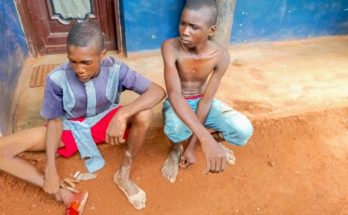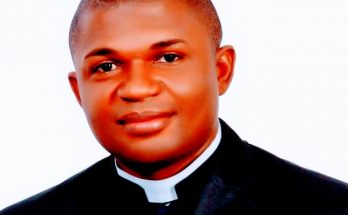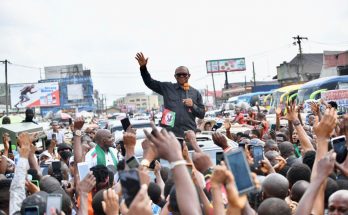Lula da Silva returns as Brazil’s president, calling for fighting poverty and hunger, re-industrializing, strengthening the BRICS, and deepening Latin American integration. Far-right leader Jair Bolsonaro fled to Florida, fearing legal consequences for his corruption.
By Ben Norton of Geopolitical Economy Report (formerly Multipolarista)

Lula da Silva has returned as president of Brazil, the world’s sixth-most populous country. This will cause a major geopolitical shift.
Meanwhile, far-right former leader Jair Bolsonaro fled to Florida, fearing legal consequences for his corruption.
Multipolarista spoke with Brazil-based journalist Brian Mier about what Lula’s third government means for Latin America and the world.
In his speech before the congress at his January 1 inauguration, Lula stressed that everyone has the “right to a dignified life, without hunger, with access to employment, health, education.” He said his “life mission” is to guarantee that every Brazilian has three meals a day.
As president, Lula stressed that he is a “representative of the working class” who “promotes economic growth in a sustainable way and to the benefit of all, especially those most in need.” He committed himself to the “widest social participation, including workers and the poorest in the budget.”
“Our first actions aim to rescue 33 million people from hunger and rescue from poverty more than 100 million Brazilian men and women, who have borne the hardest burden of the project of national destruction that ends today,” Lula added, condemning the economic crisis left behind by Bolsonaro.
Lula was a co-founder of the BRICS bloc, bringing together Brazil, Russia, India, China, and South Africa.
In his inauguration speech, Lula called for “strengthening the BRICS,” as well as deepening Brazil’s “cooperation with African countries.”
In a significant reversal of Bolsonaro’s staunchly pro-US foreign policy, President Lula also urged “the resumption of South American integration,” through the “revitalization” of regional institutions like UNASUR and Mercosur.
Bolsonaro only came to power in the first place due to two US-backed coups against Brazil’s left-wing Workers’ Party: the overthrow of President Dilma Rousseff in 2016 and the subsequent imprisonment of Lula in the lead-up to the 2018 election, on false charges that were subsequently expunged by the country’s supreme court and condemned by the United Nations Human Rights Committee.
Soon after he entered office thanks to this US meddling, Bolsonaro visited CIA headquarters. He also dedicated himself to sabotaging institutions of Latin American integration, withdrawing Brazil from UNASUR.
In contrast, as a symbol of his commitment to the Patria Grande (the project of Latin American unification), Lula waved the flag of Mercosur alongside that of Brazil at his inauguration.
Brazil’s far-right leader Bolsonaro fled to Florida before Lula’s inauguration, fearing consequences for his extreme corruption
So instead Lula was given the presidential sash by leaders of social movements fighting for the rights of Indigenous, Afro-Brazilian, & disabled people pic.twitter.com/g3nutP5793
— Ben Norton (@BenjaminNorton) January 2, 2023
Because Bolsonaro fled to Florida two days before his presidential term ended, he was not in the country to pass over the presidential sash to Lula.
So instead, Lula invited leaders of Brazil’s social movements, who fight for the rights of workers, Indigenous communities, Afro-Brazilians, and disabled people. They marched with Lula and gave him the presidential sash at the inauguration ceremony.
Lula’s innauguration ceremony is still hours away and the line is already over 3 kilometers long pic.twitter.com/UMOlO0zQ29
— BrianMier (@BrianMteleSUR) January 1, 2023
While large numbers of Brazilians celebrated Lula’s return, Bolsonaro was in Florida.
The far-right former leader was filmed walking through a gated community in Orlando, posing for photos with his US-based supporters.
Bolsonaro fled justice, knowing that he was going to be investigated and likely charged by Brazil’s justice system over his flagrant corruption and his refusal to implement public health measures during the Covid-19 pandemic, which led to 700,000 deaths – one of the worst per capita death rates on Earth.
The US backed 2 coups in Brazil, installing far-right Bolsonaro in power
He stole huge sums of public money to fund his campaign and enrich his oligarch friends
Bolsonaro then fled justice and is now living in Florida
He just met with supporters in a gated community in Orlando pic.twitter.com/DPvfH75RVj
— Ben Norton (@BenjaminNorton) January 2, 2023
Lula’s inauguration was attended by left-wing leaders from across Latin America, including:
- Colombia’s President Gustavo Petro
- Honduras’ President Xiomara Castro
- Bolivia’s President Luis Arce
- Bolivia’s former President Evo Morales
- Uruguay’s former President Pepe Mujica
- Cuba’s Vice President Salvador Valdés Mesa
- Nicaragua’s Foreign Minister Denis Moncada
- President of Venezuela’s National Assembly Jorge Rodriguez
Together, they called for deepening the integration of the region.
Also present at Lula’s inauguration were representatives from fellow BRICS members, including China’s Vice President Wang Qishan and the chair of the Russian Federation Council, Valentina Matviyenko.
China’s Vice President Wang Qishan also attended Lula’s inauguration in Brazil.
Both are cose allies and members of the BRICS bloc. In his speech, Lula called for strengthening BRICS pic.twitter.com/AUZT5Nr7C4
— Ben Norton (@BenjaminNorton) January 2, 2023



